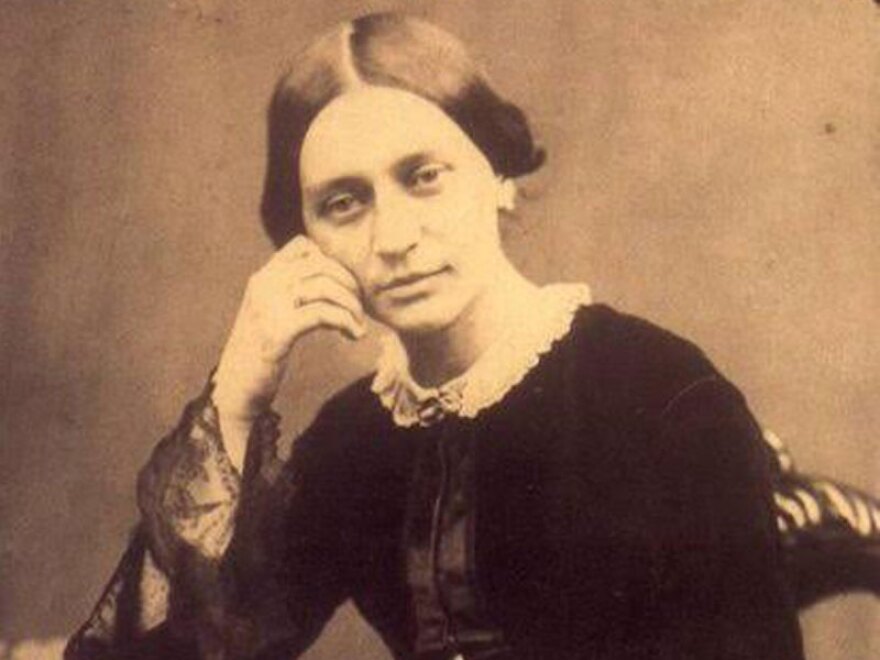Clara the colossus. Clara the champion. Clara the brilliant, Clara the brave, Clara the soloist with tears in her eyes and a wistful melody at her fingertips. Clara the composer-pianist-publicist-agent-critic-financier, Clara the beauty, Clara the wit, Clara the genius, mother, friend, mentor, muse, legacy-builder, icon. Clara Wieck Schumann, all these things and more, turns 199 today.
In the process of writing this piece, I have assigned myself a new personal mission: I will not rest until the world recognizes Clara Schumann (née Wieck) for the genius she was.

Any one of Clara's considerable talents, taken alone, is impressive.
She was one of the greatest concert pianists of her time, which itself is enough to prop her up among the geniuses lining the hallowed halls of music history.
Add to this the fact that she acted as her own agent and publicist; that she wrote upwards of 66 pieces for piano, chamber ensemble, and voice; that she singlehandedly promoted her husband's music and ensured his legacy; that she wrote with an acerbic wit that rivaled the established music critics of the day; that she accomplished all this while operating within the bounds of 19th century social norms -- not to mention the web of men in her life who sought to control her.

And Clara fought back, albeit privately. Her diary, which she kept all her life, contains candid thoughts on all of the prominent (male) musicians and composers of her day.
Reading some of these comments tipped my admiration of Clara Schumann into full-blown, overwhelming love. She never minced words -- I can only imagine what she would have done with a Twitter account.
On rival pianist/composer Friedrich Kalkbrenner, she wrote: “A sextet of Kalkbrenner’s was played yesterday, which is miserably composed, so poor, so feeble, and so lacking in all imagination. Of course Kalkbrenner sat in the front row smiling sweetly, and highly satisfied with himself and his creation. He always looks as if he were saying, ‘Oh God, I and all mankind must thank Thee that Thou hast created a mind like mine.’”

On Franz Liszt, her sworn enemy: “Before Liszt, people used to play; after Liszt, they pounded or whispered. He has the decline of the piano on his conscience.” And, later, “The women were, of course, mad about him – it was revolting.”
On Richard Wagner's Tristan und Isolde: “The most repugnant thing I have ever seen or heard in all my life… During the entire Second Act the two of them sleep and sing; through the entire last act – for fully 40 minutes – Tristan dies. They call that dramatic!!!”
On Anton Bruckner's Symphony No. 7: "A horrible piece."
I love her. I love her so much. What I wouldn't give to have a conversation with her. And she clearly knew what she was talking about -- her celebrity as a pianist gave her access to all the music that Europe had to offer.
At the piano, she poured her soul into the music. She wrote, “It often seemed to me – and still does – that when I played, my overburdened soul was relieved, as if I had truly cried myself out.”

Other sources quote her as saying she was only ever happy when she was playing. An 1856 Guardian review of one of her concerts states that "comparing Madame Schumann with the leading pianists of the day, we would say at once that she surpasses them all in that great quality which we sum up expressively by the word 'soul.'"
And then there's her music. Turbulent, charming, lyrical, tender -- her compositions distill the best elements of the music she performed throughout her life. Listen to any of her music and just try to tell me Clara wasn't one of the brightest musical voices of her century. I'll wait.
Further reading:
2. Composer and Pianist Clara Schumann Achieves Modern Milestone
3. Junkshop Classical on Clara Schumann
4. "I Read a Book about Brahms and All I Got was this Obsession with Clara Schumann"



